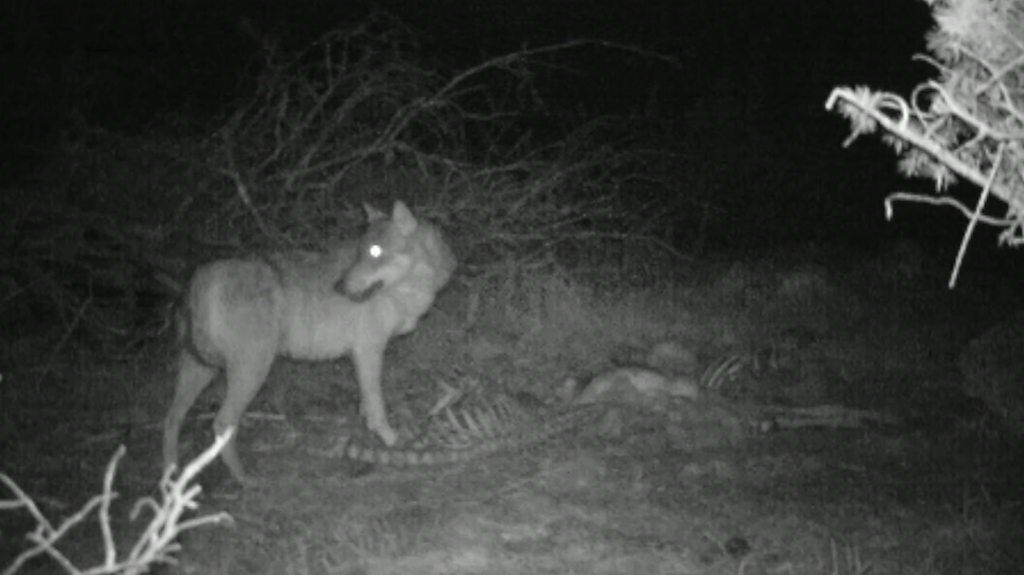Beware the return of the Iberian wolf, say Spain's farmers
- Published
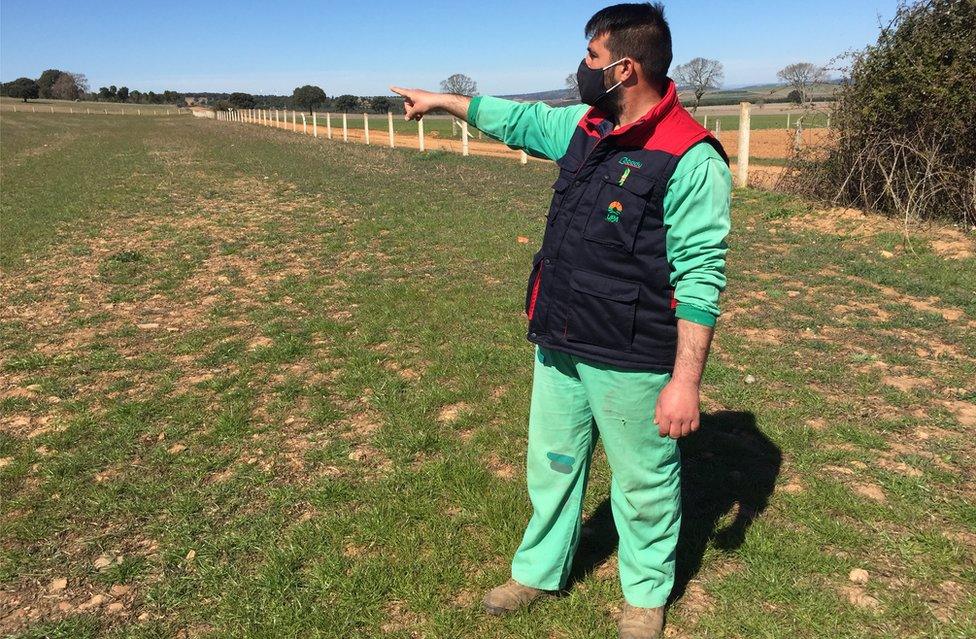
"This is where it happened," says Felipe Luis Codesal, opening the gate to a three-hectare field on his farm in Zamora, north-west Spain.
One night last November, a pack of wolves got through the fence surrounding the field and attacked Mr Codesal's sheep, many of which were pregnant. When he arrived the next morning, he found 11 animals had been killed. Over the following days, he says, another 36 sheep died from injuries sustained in that attack and miscarriages it triggered.
Mr Codesal fears that such attacks will become even more commonplace if a proposed change to laws protecting the Iberian wolf comes into force.
The leftist coalition government plans to prevent the Iberian wolf from being hunted anywhere by categorising it as an endangered species. The reform is yet to be implemented and could see changes.
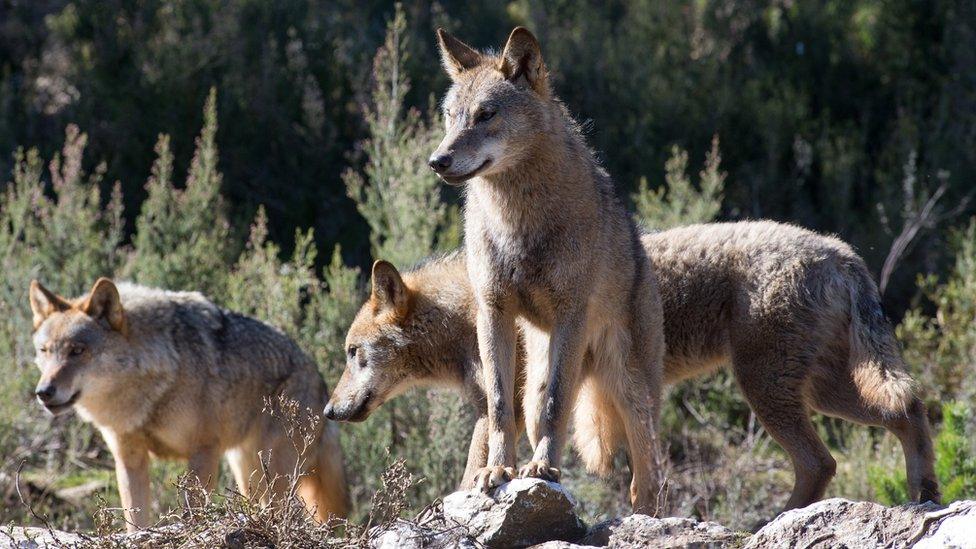
Spain has Europe's biggest wolf population: These Iberian wolves are kept at Zamora's Iberian wolf centre
"It's like in a nightclub when there's a fire," says Mr Codesal of the wolf attack. "There's a stampede and people get trodden on and hurt. This is the same."
He was not entitled to any compensation and estimates that the financial losses he suffered from this incident totalled around €12-14,000
"It's not even about the money," he says. "It's emotional, because the animals are part of my family."
A 'historic' change?
The region of Castilla y León is the habitat for most of Spain's wolves. Figures gathered by the local government showed that they killed 3,774 sheep and cows in the region in 2019.


Felipe Luis Codesal's farm is just north of the Duero river, which marks a natural border between north-west Spain and the rest of the country. Until now, it has been legal to hunt wolves north of the Duero, under a strict quota system, because that is where they are most prevalent.
South of the river they have been protected.
Conservationist groups have welcomed the government plan. When it was unveiled in February, the Ecologistas en Acción organisation hailed it as a "historic day".
But Mr Codesal, who is a member of the UPA association of smallholder farmers, warns the reform will ruin livestock owners by allowing the wolf population to spiral out of control and roam uncontrolled. The UPA is unconvinced by measures included in the plan to subsidise the installation of fences and the use of guard dogs in livestock farming areas.
Biggest wolf numbers in Europe
The Iberian wolf was close to being wiped out in the middle of the 20th Century. But it enjoyed a resurgence on the back of new hunting regulations introduced in the 1970s and the migration of Spaniards away from rural areas also encouraged its spread down from the north-western corner of the country.
In recent years, wolves have moved into areas such as the Guadarrama mountains north of Madrid and near the city of Ávila, to the west of the capital.
There are now some 2,500 Iberian wolves: around 2,000 are in Spain - the largest wolf population in western Europe - and the rest in Portugal.
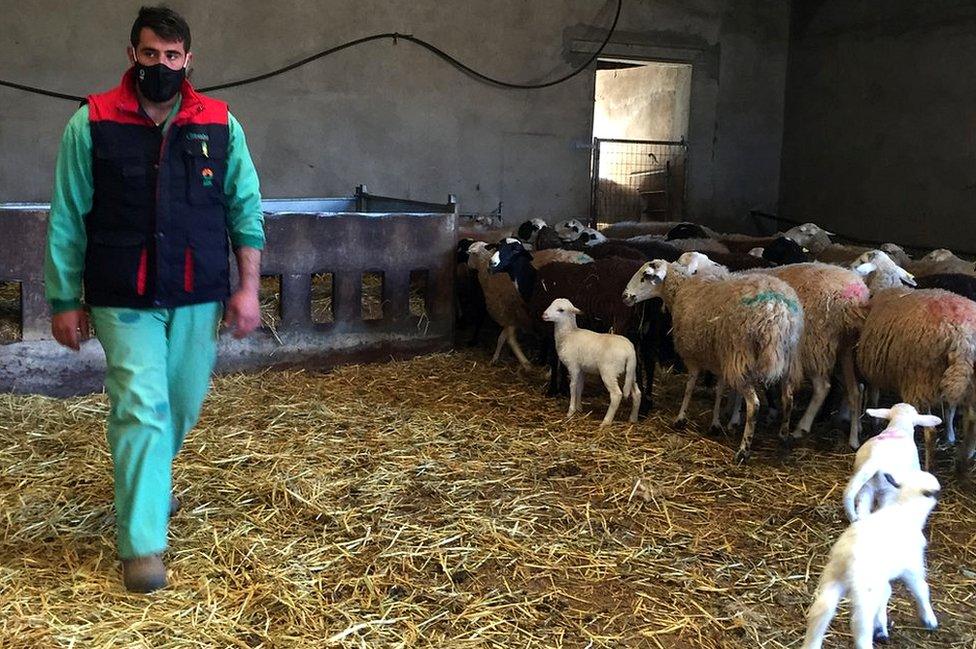
Dozens of Mr Codesal's sheep died after a wolf attack last November
"The wolves are very important from an ecological point of view," says Juan Carlos Blanco, an independent biologist and wolf expert. He points out that they keep in check wild ungulates, such as roe deer, red deer and wild boar, which can damage crops, cause road accidents and spread diseases among livestock.
"The wolf is at the top of the chain and it's very important when it comes to regulating the natural systems," he says.
'Hippy conservationists and mummy's boys'
While Mr Blanco welcomes the proposed hunting ban, he says this has become a social issue, pitting the negative vision of the wolf held by many rural communities against a more positive view among city dwellers.
The Asaja farmers' association reflected this schism when it attacked the government's reform on the grounds that it was pandering to "a legion of hippy conservationists and mummy's boys who only go to the countryside at the weekend and normally only to cause problems for the local people".
Mr Blanco says the central government will now need to negotiate with livestock owners and the local authorities in the north west who are unhappy with the plan, in order to ensure its success.
"In Spanish we say that a bad agreement is better than a good fight," he says. "And I think that should be applied to the wolf conflict."
Wolves are making a comeback in France - but farmers say this could lead to more attacks (Video from 2018)
- Published25 December 2019
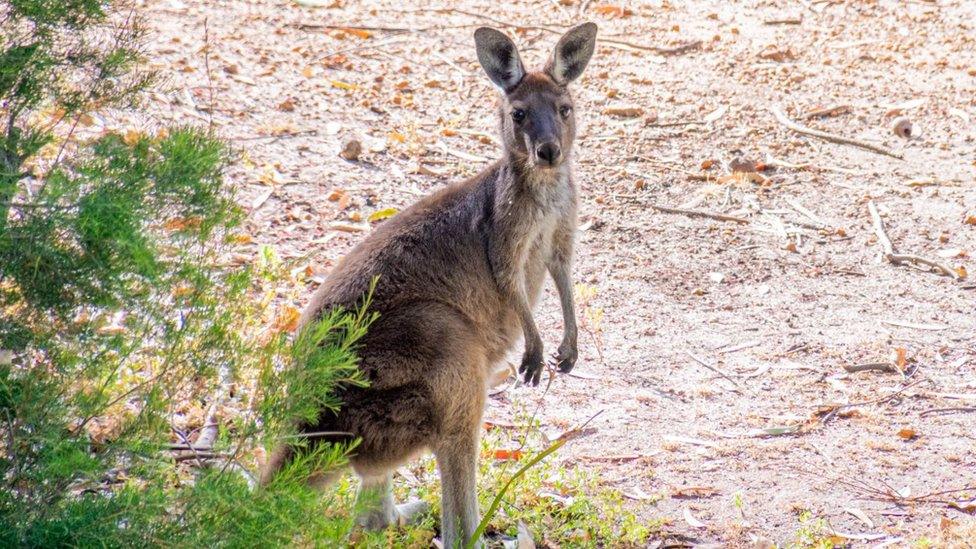
- Published20 June 2018
